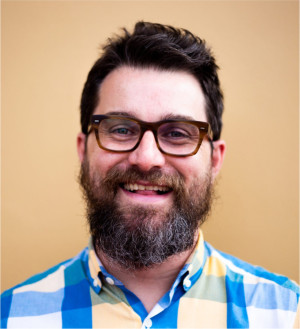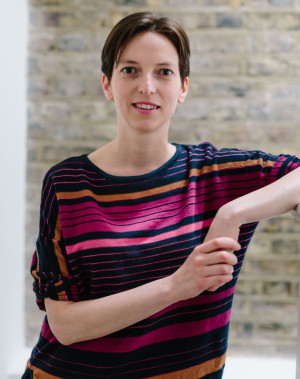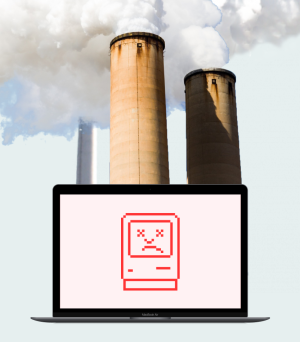Bringing The Drama: A Creative's Role In The Climate Crisis
If tackling the climate crisis is the responsibility of everyone, what is a creative's role in the fight for our planet?
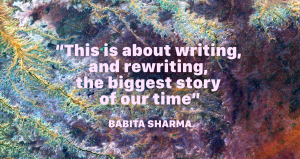
In October, I attended the one day online BBC Climate Creatives Festival. The day brought together a range of speakers, reporting across multiple creative fields with the intention of discussing and highlighting the immediate need and rising opportunities for creatives wanting to tackle climate change.We heard from the writers of climate focused dramas to designers building stories of sustainability into computer games. We learnt about the carbon footprint of smart tech and the power of comics. It was a day full of practical information and inspiration, but what I took out of it most was a re-assessment of what it means to be 'a creative’, and why it matters.
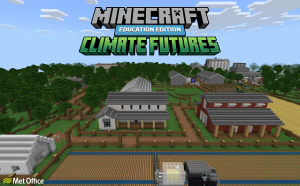
Historically, stories that acknowledge or involve climate change are about exactly that. Made for the sole purpose of educating people on the issues of rising sea levels, hotter summers, and incredibly unhappy polar bears. They urge us to take action. Recycle your jam jars, turn your lights off, walk to work. We nod and agree in the moment, but for many the momentum is lost when we turn off our TV and go back to our lives. We become tired and frustrated with the narrative and opt for something lighter next time. A gripping drama, a comedy, let’s watch a film instead.
This isn’t a critique. It’s simply a moment to realise these narratives aren’t enough anymore. We are now seeing creatives bringing the climate crisis into our lives through mediums we don’t expect. Stories about choosing to not have children in Eastenders, hydroponic farms in Minecraft, this is no longer a separate issue to engage with, it’s the issue of our time. For emerging writers and creatives hoping to glue us to our screens there’s an acceptance that as the crisis grows, every story is a climate story.
This was the key narrative throughout the festival. How do we engage with and take on this important role as artists, designers, writers who may not have tackled it before? Climate change is a rich but somewhat daunting problem for storytellers because the science is so complex. Collaboration was one answer from BBC writer Owen Sheers, who believes historic inaction on climate change is down to bad storytelling and the failure of narratives (plus the success of counter narratives). His parting advice was urging people to bring scientists and artists into the same room to tell the stories that need to be heard. This can only be solved if we break our siloes.
The other prominent takeaway was about replacing impenetrable science and jargon with the relatable human stories that bring reality closer. We heard from Sue, a recent climate convert who explained the reasons for her new found interest in building a sustainable life. She recalled feeling alienated by the information provided on climate change, and warned that scientific jargon doesn’t just bounce off people, it actively turns them away. After being chosen by the BBC to attend an event, she said the key to unlocking her interest was clear visual cues explaining the link between the rise in temperature and its devastating consequences, and widening the lens on what can be done by her as an individual, and what is the job of big business and government.
“When I found out what climate change was, I felt it was my public duty to do what I could. I bought a second hand electric car, and joined my local council. I talk to others about the things I learnt and am now doing."
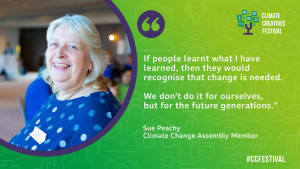
Humans are naturally empathetic beings. We care about each other, and we feel the struggles of others. Focusing on the stories of humans around the world, the people at the forefront of climate change helps bring perspective and urgency to audiences who can relate to emotions, even if not in the same situation themselves. It’s important for people to feel the nature of the crisis to be moved enough to act.
I left the festival feeling a greater sense of my own role as a creative. Being a designer is about empathy, holding space for the stories of others and helping people tell them with purpose, passion and urgency. We have 2 futures in front of us. The creative industry can explain these choices and bring them to life. We can imagine, dream and build our way into a future that is better for everyone. In some ways, the climate crisis is the ultimate creative brief.
You can find all the talks from the BBC Climate Creatives Festival on their website here.
Image Source: Chris Burkard; Minecraft Education Edition; BBC Academy

